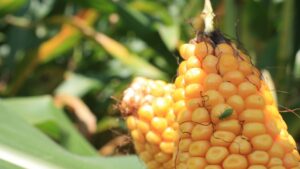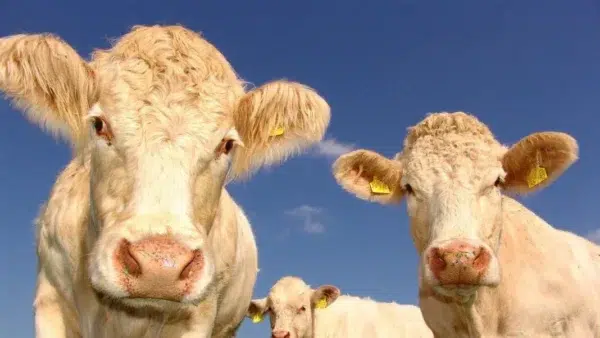Industry News is geared to seed professionals and delivers the people, industry, business and product news you need to know. Submissions are welcome. Email us at·news@issuesink.com.
People News
DuPont Pioneer hired Neal Gutterson as vice president of Agricultural Biotechnology. Gutterson joins Pioneer from Mendel Biotechnology where he served most recently as president, chief executive officer and board member. “Neal brings extensive biotechnology and business leadership in the seed and crop protection industry to this integral role for DuPont Pioneer,” says Paul Schickler, DuPont Pioneer president.
The board of the International Crops Research Institute for the Semi-Arid Tropics (ICRISAT) appointed David Bergvinson as its next director general for a five-year term, effective Jan. 1, 2015. Bergvinson will replace William Dar, who has served the Institute since 1999.
GrowMark names Jim Spradlin as the company’s new CEO. Spradlin has held various positions within the GrowMark system of cooperatives, including controller of Schuyler-Brown FS, regional administrative director, general manager of Piatt Service Company, agronomy division manager, vice president of agronomy and others.
Bayer AG gave a two-year extension to Marijn Dekkers’s contract as CEO, which he’ll serve until the end of 2016. Werner Baumann, current chief financial officer, will assume the position of chief strategy and portfolio officer Oct. 1. Baumann’s existing contract runs until Dec. 31, 2017. Also effective Oct. 1, 2014, Johannes Dietsch, senior representative and CFO for greater China, will assume the position of CFO of Bayer AG.
The American Seed Trade Association elected its 2014-15 officers during the its annual convention. New ASTA leadership includes chairman, John Schoenecker of HM.CLAUSE; first vice chair, Risa DeMasi of Grassland Oregon; and second vice chair, Mark Herrmann of Monsanto Vegetable Seeds.
Dan Foor has taken the reins of La Crosse Seed from Paul Curran, who has been the company’s CEO since 2000. Curran will remain active as chairman of the board. Prior to joining La Crosse Seed in 2011 as chief operating officer, Foor held leadership roles at Monsanto Company.
Bayer CropScience has announced that Adrian Percy, senior vice president of global regulatory affairs, will head global research and development. In his new role, Percy will become a member of the Bayer CropScience Executive Committee.
Wyffels Hybrids has hired Scott Furbeck as a product development manager responsible for testing and managing corn hybrids and seed technology. As part of the company’s research and development group, Furbeck will plan and coordinate research activities and agronomic experiments.
Product News
The U.S. Department of Agriculture announced the availability of $3 million to protect vulnerable pollinators through the Environmental Quality Incentives Program. The funds will be available to farmers located in Michigan, Minnesota, North Dakota, South Dakota and Wisconsin for technical and financial assistance to improve the health of honeybees. La Crosse Seed now offers two mixes formulated specifically to meet the requirements of the pollinator programs in all five states.
INCOTEC’s patented technology, ThermoSeed, shows a strong priming effect for field crops, alongside its function as a seed disinfectant. After years of trials, the ThermoSeed-treated seeds demonstrate faster and more uniform germination, even when the seeds are exposed to stressful conditions in the field, such as low temperatures. The technology is used in Europe and North America, especially for crops such as cereals and rice. It’s being tested and introduced in Japan and Brazil. “This development can be seen as a breakthrough for everyone working with large-acre crops,” says JanWillem Breukink, a senior executive member of INCOTEC’s board of directors.
Business News
In its second quarter 2014 earnings report, Dow Chemical Company announced that Dow AgroSciences achieved record second quarter sales of $1.9 billion, up 3 percent versus the same period last year. On a year-to-date basis, sales were $4 billion, representing a first-half record for the segment. Within the quarter, seeds delivered 3 percent sales gains. Dow says business drove growth in both corn and soybeans in North America and Latin America.
Evogene Ltd. and Marrone Bio Innovations Inc. announced the signing of a multiyear collaborative agreement targeting the joint discovery of novel modes of biological action for insect control, followed by the development and commercialization of new insect control products by each of the companies. Integrating these industry-leading discovery capabilities, the companies will use the collaboration’s joint assets to separately develop and commercialize products. Specifically, Evogene will develop biotechnology insect resistance seeds and MBI will develop biologically-based insecticides. Targeted insects include the Western tarnished plant bug and beet armyworm.
Dow AgroSciences LLC is now the full owner of Advantage Wheats Pty Ltd. In 2011, Dow made a major investment in the company and has since acquired the remaining shares. The acquisition is part of the company’s strategy to become a key wheat player in Australia and around the world. Dow also signed an agreement to purchase Coodetec’s Brazilian seeds business. The transaction is subject to the approval of the Brazilian antitrust authority. The company’s strategy in Brazil is to advance the development of its soybean program and strengthen its position in the corn market. The transaction is expected to be complete by the end of 2014.
Midwestern BioAg Inc., Proteus Environmental Technologies LLC and Grower’s Secret Inc. (GSI) have completed a strategic acquisition and investment in the future of Midwestern BioAg. An investment group led by Proteus and GSI has acquired a controlling interest in Midwestern BioAg with a plan for infusing $20 million of growth capital into the business to execute the first stages of its national and global expansion. The company plans to increase its reach 10-fold or more through expanded sales efforts, mergers and acquisitions and strategic partnerships.
Dow AgroSciences LLC and Sigma-Aldrich Corporation have announced an exclusive manufacturing license and supply agreement that will allow Sigma-Aldrich to manufacture and supply zinc finger nuclease (ZFN) reagents for use with Exzact Precision Technology (EPT). Under the agreement, Sigma-Aldrich will be the exclusive provider of ZFN reagents for use in plants, which will be available to Dow, its affiliates and licensees of the EPT, to enable precision transformation, trait stacking and targeted mutagenesis.
Syngenta will acquire the German and Polish winter wheat and winter oilseed rape-breeding and business operations of Lantmannen — a Swedish food, energy and agriculture group. Syngenta will gain access to high-quality germplasm, a seeds pipeline and commercial varieties, which complement the company’s portfolio in two of Europe’s most important crops. Lantmannen employees in Germany and Poland will also join Syngenta. As part of the transaction, Syngenta and Lantmannen will also enter into a research and development collaboration in wheat and will distribute Syngenta cereals and winter wheat and winter oilseed rape seeds in Sweden.
AgriGold collaborated with Kinze Manufacturing Inc. to conduct on-farm testing of an electric multi-hybrid concept planter in Iowa. The multi-hybrid technology provides farmers with the ability to change the seed hybrid they are planting automatically as the planter moves through the field. This planter can also deliver a variable-rate seeding prescription. AgriGold worked with growers in Iowa using the planter this past spring.
Ohio’s Advanced Biological Marketing Inc. and the Netherlands-based INCOTEC Group B.V. have come to an agreement in which I
NCOTEC will combine ABM’s yield-enhancing inoculants with its seed coating and enhancement technologies. INCOTEC will have marketing rights to ABM products in the United States, Europe, India and South America. “We are excited to partner with INCOTEC to help increase yields and profitability for farmers,” says Dan Custis, CEO of ABM.
Industry News
Scientists at the John Innes Centre in the United Kingdom, with colleagues at the University of Jordan in Amman, Jordan, have developed barley plants that have four times the drought tolerance of their parent stock. Using genetic modification, the scientists worked on a gene responsible for opening and closing tiny pores on the surface of the barley leaves. They put the naturally-present gene that controls this process into overdrive and were able to develop barley plants with stomata, which closed more readily when water was scarce. This helps retain the plant’s water content and makes them more resilient in drought conditions. The findings have been published in the journal “Molecular Breeding.”
According to a Global Industry Analysts Inc. report, the global market for biopesticides is forecasted to reach $6.2 billion by 2020, buoyed by the enactment of stringent government regulations, thus curbing the use of chemical pesticides. The report noted that the United States represents the single largest biopesticides market worldwide, while Europe represents the fastest growing market.
A recent study by Battelle and Biotechnology Industry Organization shows that the U.S. bioscience industry demons-trated strong growth from 2001 to 2012. “Battelle/BIO State Bioscience Jobs, Investments and Innovation 2014,” reveals a robust bioscience sector. According to the report, bioscience firms employ 1.62 million people, creating nearly 111,000 new, high-paying jobs since 2001. Within the private sector, the bioscience industry contributed an additional 6.24 million jobs, yielding a total employment impact of 7.86 million jobs.
DuPont Pioneer announced a first-of-its-kind three-year collaboration with eight land-grant universities through their respective soil nutrition management experts to help growers maximize crop yields in a more sustainable way. Through support offered by Pioneer, this collaboration will pull together expertise in different soil nutrition areas and generate field data to improve crop models used to enhance more efficient production practices. Each university will be able to expand its field data collection and analysis. The universities involved are Iowa State University, North Dakota State University, Purdue University and the universities of Illinois-Urbana, Minnesota, Missouri, Nebraska-Lincoln and Wisconsin-Madison.
Research and Markets released “Agricultural Biotechnology Market — Global Industry Analysis, Size, Share, Growth, Trends and Forecast, 2013-2019.” The report confirms that soybeans and corn are the most widely consumed genetically modified crops globally. Rising demand for animal feed due to increasing meat consumption is expected to drive the market for these crops. The report also reveals that biotech companies spend 15 to 20 percent of revenues on research and development initiatives.
Three Asian institutions have released the genetic sequences of 3,000 rice lines. “The 3,000 genomes will help us explore new genes needed to create new adaptive varieties,” says Hei Leung, a plant geneticist at the International Rice Research Institute. The hope is that this genetic information will lead to identifying genes for drought, disease and pest resistance, as well as tolerance for poor soils. The next step is to connect the genetic sequence information to specific phenotypic traits. The sequencing effort was a collaboration among IRRI, BGI in China and the Chinese Academy of Agricultural Sciences in Beijing. The report is available in the journal “GigaScience.”
The International Service for the Acquisition of Agri-Biotech Applications updated its booklet “Agricultural Biotechnology — A Lot More Than Just GM Crops.” The booklet explains and compares agri-biotechnology tools, including conventional breeding, tissue culture and micropropagation, molecular breeding, marker-assisted selection and genetic engineering.
The events that happen the first few days after corn pollinates are critical, but little is known about this initial stage. Brian Larkins, a University of Nebraska-Lincoln plant scientist, and a multi-institutional team have identified the genes and many of the molecules involved. “The early stages create the foundation for the later stages,” Larkins says. “If they’re damaged, as happens during drought or heat stress, then you never realize the full potential of the kernel.” The team reported their findings in the proceedings of the National Academy of Sciences.
Where on the Web
Farmers now have the ability to find solutions to agronomic issues at Agronomy Answers on Mycogen.com. “It’s a great resource for growers seeking tips on everything from scouting to equipment preparation,” says Craig Solomon, Mycogen Seeds customer agronomist. “Articles cover corn and soybeans, as well as canola, sunflowers, sorghum and alfalfa.”
Researchers at the University of Missouri have developed the digital infrastructure to store previously disregarded data to take plant science to the next level. The Soybean Knowledge Base (SoyKB), a free online data resource, allows collaboration among international researchers and farmers. “Researchers deposit their results from experiments into the database, and high-capacity computer systems crunch the numbers to help determine results,” says Trupti Joshi, a University of Missouri College of Engineering assistant research professor in computer science. “Their experiments become a part of the bigger picture, allowing future researchers to narrow their own results.”














